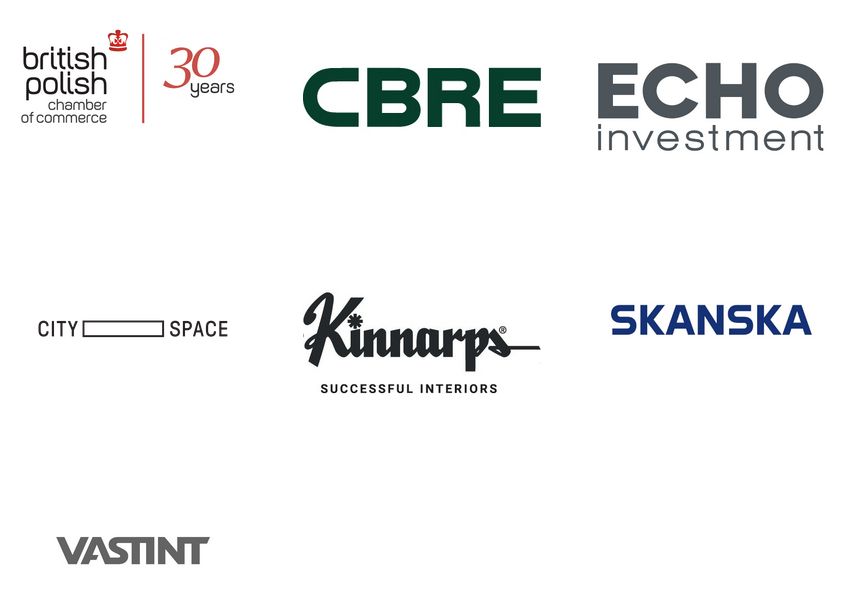- Executive Note
- Editorial note
- Interviews
- Green transformation
- Events Coverage
Lower Silesian Real Estate Forum
British Polish Chamber of Commerce | Oct 25, 2022, 15:26
The annual Lower Silesian Real Estate Forum took place at the DoubleTree by Hilton hotel, Wrocław on 20 October 2022. Speakers from CBRE, Skanska, Echo Investment, CitySpace, Vastint and Kinnarps, set out to look at the regional prospects for the sector for 2023 and beyond, highlighting trends and offering insights.

The first part of the forum was a series of presentations analysing where the real-estate sector was right now; speakers were Paweł Boczar, director of CBRE’s regional office in Wrocław, Jowita Czech, commercial projects leasing manager at Echo Investment, Krzysztof Szargawiński, regional director at City Space, and Marcin Janik, senior consultant, industrial and logistics, at CBRE. This was followed after a networking coffee break by a panel discussion, at which Mr Boczar was joined by Maria Lorenc, Kinnarps’ workplace expert, Skanska’s lettings director, Marek Stasienko, Katarzyna Kubicka, regional director for commercial projects, Jakub Bawoł, marketing manager at CitySpace, and Vastint’s senior leasing manager, Marek Ulanecki.
Several issues dominated proceedings. One was the post-pandemic return to the office (or not) and how this would affect the future of office development. There were a number of differing views; some speakers said that it would be inevitable in the long run that offices would become the desired destination of employees, particularly those in sectors where creativity was important. Others argued that demand for office space would fall, with many employees opting to work from home, or from flexible offices, perhaps located on the periphery of urban areas.
There was agreement that the role of HR departments is crucial in creating an atmosphere and ethos which would be compelling to employees. Office interiors, their fit-out and furnishings, are as important as location. But which locations would win out? City centres are ‘democratic’ in that they are equally near and equally far for all employees and their managers, and close to the attractions of urban life. Yet the downside is a long commute. An alternative was discussed – flexible office spaces on cities’ edges, closer to where employees live – bringing critical groups together to collaborate on projects.
The other big issue concerned the next budget cycle and how this would look in practice. On the one hand, developers are faced with soaring prices of building materials and wage inflation among construction workers; on the other hand, corporate tenants are squeezed for cash from all sides, leaving less money to spend on more expensive real estate. The likely outcome would be a softening of both demand and supply.
One sector that seems to be doing well despite current difficulties is industrial and logistics, where nearly half of all projects are still being built speculatively and finding clients. The Russian invasion of Ukraine has had an upside and downside; the former being a sudden upturn in demand for logistics space from which to supply Ukraine, the latter being the postponing of some big projects on grounds of geopolitical risk. Investors holding back tend to be from the Far East or North America, without a clear understanding of the realities of the situation. Nearshoring continues to drive manufacturing industry, as supply-chain disruption leads to unacceptably long delivery times. Central Europe is seen as a prime location for such activity.
As with previous editions of the Lower Silesian Real Estate Forum, the event attracted a large live audience, interested in hearing about the forces shaping the development of the real estate market in the region.








